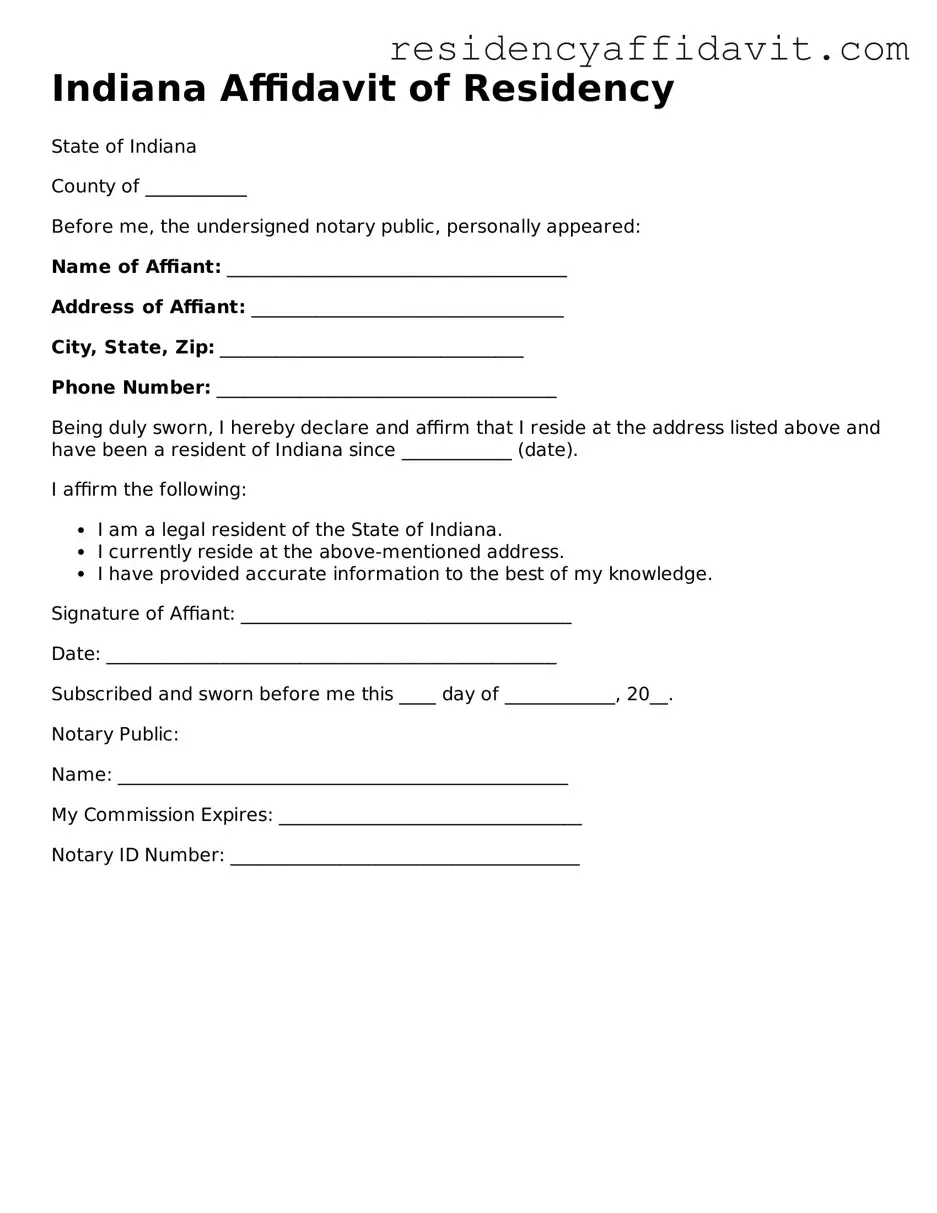Attorney-Approved Affidavit of Residency Document for Indiana
The Indiana Affidavit of Residency form is a legal document used to verify an individual's residency in the state of Indiana. This form serves various purposes, including establishing residency for educational, voting, or legal matters. Understanding its significance can help individuals navigate requirements effectively.
Get My Affidavit of Residency Online

Attorney-Approved Affidavit of Residency Document for Indiana
Get My Affidavit of Residency Online
Your form progress is not saved
Edit and save Affidavit of Residency online, ready to download.
Get My Affidavit of Residency Online
or
➤ Affidavit of Residency PDF Form
